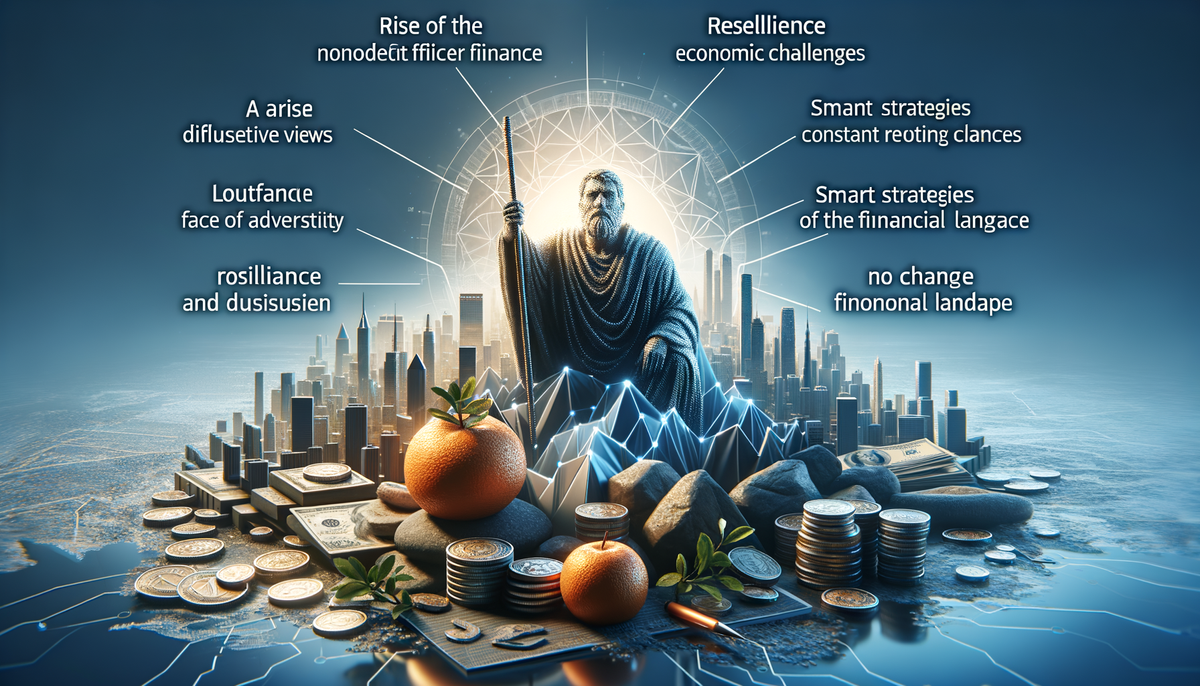Ken Griffin: Navigating the Complex World of Finance and Philanthropy
Explore Ken Griffin's influence in finance and his views on economic challenges. Learn key insights and strategies for success from his journey.

Ken Griffin: Navigating the Complex World of Finance and Philanthropy
Kenneth Cordele "Ken" Griffin, a name synonymous with financial acumen and philanthropy, continues to influence the global financial landscape. As the founder, CEO, and co-CIO of Citadel LLC, Ken Griffin's impact is both profound and far-reaching. In this week's coverage, we delve deep into the latest developments surrounding Ken Griffin, especially in light of recent news where he openly criticized former President Trump's trade policies for eroding the U.S. brand and economic prosperity [CNN, Semafor, Bloomberg].
Early Beginnings and Rise to Prominence
Ken Griffin was born on October 15, 1968, in Daytona Beach, Florida. From humble beginnings, Griffin's journey to becoming a financial titan began with his education at Harvard University, where he graduated with a degree in Economics in 1989. Remarkably, Griffin's trading career took off during his sophomore year at Harvard, where he operated out of his dorm using basic technology [source]. This ingenuity and drive set the stage for his future success.
Establishing Citadel and Navigating Challenges
After catching the attention of Frank Meyer of Glenwood Capital Investments, Griffin was entrusted with $1 million to manage post-graduation, where he impressively returned 70% in a year. This early success led to the founding of Citadel LLC in 1990 with $4.6 million. Citadel quickly expanded, earning returns of 43% in 1991 and 40% in 1992, which solidified its reputation as a powerhouse in the hedge fund industry [source].
The 2008 financial crisis posed significant challenges for Citadel, with substantial losses and temporary restrictions on investor withdrawals. However, the resilience of Griffin and his team saw Citadel rebound with an impressive 62% return the following year. Today, Citadel manages over $27 billion in capital and remains a leader in global finance [source].
Griffin's Influence and Philanthropy
Beyond finance, Ken Griffin is recognized for his philanthropic efforts, having donated over $600 million to education, arts, and civic initiatives. This includes noteworthy contributions such as $125 million to the University of Chicago and $16.5 million to the Field Museum in Chicago. Griffin's philanthropic vision is to create lasting impacts on communities, including building sports fields and empowering local organizations [source].
Business Insights and Leadership
Ken Griffin's comments on American trade policies underscore his deep understanding of global economic dynamics. His critical view on former President Trump's trade war positions highlight Griffin's foresight and commitment to maintaining U.S. economic strengths. Citadel's innovative practices and technological advancements continue to position it ahead of the curve in the competitive finance sector.
Actionable Insights for Finance Professionals
For industry professionals, Ken Griffin's story offers key takeaways: embrace innovation, remain adaptable in face of challenges, and prioritize giving back to your community. Griffin's ability to leverage technology and maintain a forward-thinking approach serves as a model for aspiring leaders in finance. Citadel’s strategies provide a blueprint for sustaining growth and achieving success even in turbulent times.
Explore Opportunities with Ken Griffin's Insights
If you are seeking to align your financial strategies with insights from leading industry figures like Ken Griffin, consider how your organization can learn from Citadel's resilient practices and innovative techniques. For more on how we can support your financial growth, reach out to learn more about our services or explore the opportunities with us.
Call to Action: Dive deeper into the strategies and insights shared by renowned leaders like Ken Griffin. Contact us today to see how we can help you navigate the complexities of the financial world.




